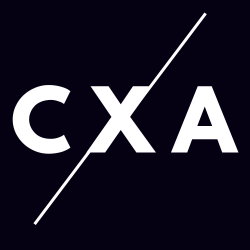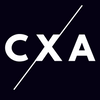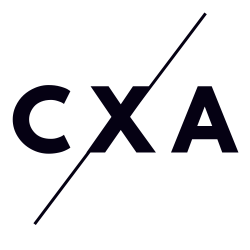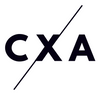Weighing the Costs and Risks: Agency vs. In-House Marketing Services

For businesses looking to scale their digital marketing efforts, the debate between hiring an in-house team or outsourcing to an agency is a critical decision.
While an in-house team is often seen by many companies as 'nirvana' and may appear to be the more controlled and dedicated option, the hidden costs and risks can often outweigh the benefits.
In this update, we explore the financial and operational risks associated with in-housing digital marketing services. We speak with a co-founder of a Melbourne based email marketing agency to get his perspective given his more than 15 years running and owning an agency.
And before we start, yes we acknowledge we have skin in this game, but far from coming at this at an emotional level, we've done the numbers for you. So you can see, in black and white - ones and zeros - the costs, risks and opportunities of both approaches.
Want a free marketing report about your company, customers and competitors?
Request one here.
The Costs: In-House Salaries vs. Agency Retainers
The table below offers a stark comparison between the costs of an in-house marketing team and an agency.
We have created what we believe would be a lean in-house team consisting of a Subject Matter Expert, a Second-in-Command (2IC), a Creative Specialist, and a Social/Google Specialist. The total comes to annual salary expenses of $450,000 (AUD). Beyond salaries, businesses must also account for additional benefits such as computers, phones, insurance, work cover, email accounts, bonuses, and salary reviews.
In contrast, an agency charges annual retainers between $10,000 and $50,000, depending on budget and service level. In addition to costs being significantly lower than in-house teams and with no additional overheads, entitlements, or sick leave obligations, the expertise available via agencies is exceptional.

Want a free marketing report about your company, customers and competitors?
Request one here.
Key Risks of In-Housing Digital Marketing Services
While some businesses prefer to have dedicated employees handling their digital marketing services, such as Google Ads, Meta Ads and email marketing the considerations and risks of doing so should not be overlooked or undercooked.
IP Flight Risk. One of the biggest risks of an in-house marketing team is the potential loss of intellectual property (IP) when an employee leaves. Marketing strategies, campaign data, proprietary knowledge, and even key account access can walk out the door with them, leaving businesses vulnerable. Replacing that expertise is not only costly but also time-consuming.
Agencies, on the other hand, ensure continuity. Their teams are structured to retain and manage client IP securely, mitigating the risks of knowledge gaps when a single employee departs.
Leave Risk. An in-house team comes with mandatory annual leave and sick leave entitlements. The cost comparison table above indicates that the four-person team could take a combined 20 weeks of annual leave and 8 weeks of sick leave per year. This raises several operational concerns:
- Should you hire additional staff to cover for employees on leave, further inflating costs?
- Should you overload employees before and after their leave, leading to burnout and decreased productivity?
- Should you simply hope that no major issues arise during their absence?
With an agency, leave is never an issue. Agencies operate with a full team of experts who ensure uninterrupted service, so campaigns remain optimised and running smoothly at all times.
We asked Wei from The Orchard Agency about these particular points and he said "many brands that have left us to try the in-house route eventually return. They realise that agencies offer not just expertise, but also flexibility, speed, and a team that can hit the ground running, without the long-term commitment or hiring headaches."
Performance Accountability & Optimisation
When marketing is handled in-house, how do you objectively assess performance? Without an independent provider, it becomes difficult to determine whether you are achieving the best possible results or simply maintaining the status quo.
Agencies are performance-driven by nature. Their success depends on delivering measurable results, meaning they continuously optimise campaigns, test new strategies, and ensure the best return on investment. An in-house team may lack the same level of external benchmarking, risking stagnation over time.
Overcapitalisation on One Business Area
For many businesses, investing $450,000+ per year on a 4 person in-house team may not be the most efficient use of capital.
When putting together the business case for in-housing agency services, ask yourself and answer the following questions:
- How else could that money be allocated?
- Could it be used to expand product development, enhance customer service, or invest in technology?
- Does the $450,000 even need to be spent, could it simply go to paying down company debt, building a bigger moat in the event of lean-times?
- Could the money invested be spent on trialling new products, conducting focus groups to get to know your customers better?
- Could a portion (a quarter or half) of the money simply be spent on more advertising to drive more revenues, while allocating the rest to other parts of the business?
Agencies provide businesses with high-level expertise across multiple marketing channels without requiring such a significant upfront investment. This enables businesses to remain agile and allocate their budget more strategically.
Motivation and Productivity Risks
When an employee is salaried and has little at risk, how do you ensure peak performance? Unlike in an agency setting—where results dictate reputation and client retention—internal teams may lack the same level of external pressure to consistently perform at their best.
Agencies work with multiple clients and are exposed to constantly evolving trends and strategies, making them more adaptable and results-focused. With an in-house team, there is often less urgency to innovate, leading to stagnation and missed opportunities.
The final word: The Smarter Business Decision
While some companies opt to keep digital marketing in-house - managing Google Ads, Meta Ads, email marketing, and more - the reality is that this decision is often more costly and risk-prone than outsourcing.
The IP flight risk, leave risk, lack of external performance benchmarking, overcapitalisation, and motivation issues all pose significant threats to long-term success.
Outsourcing to an agency provides access to a team of specialised experts, cost efficiency, and guaranteed continuity without the challenges of hiring, training, and retaining staff. As the provided comparison table illustrates, the financial gap between an in-house team and an agency is vast, and businesses that recognise this can leverage agencies for better results at a fraction of the cost.
Ultimately, while there may be a case for in-house teams in specific situations, the smart business decision for most companies is to leverage an agency to maximise ROI, minimise risk, and ensure sustained marketing success.
Co-Founder of The Orchard Agency, Wei Tan leaves us with this final insight "after 15+ years in the agency world, we’ve seen it time and time again: outsourcing isn’t just a stopgap; for many businesses, it’s the smarter, more scalable solution."
Want a free marketing report about your company, customers and competitors?
Request one here.




Leave a comment